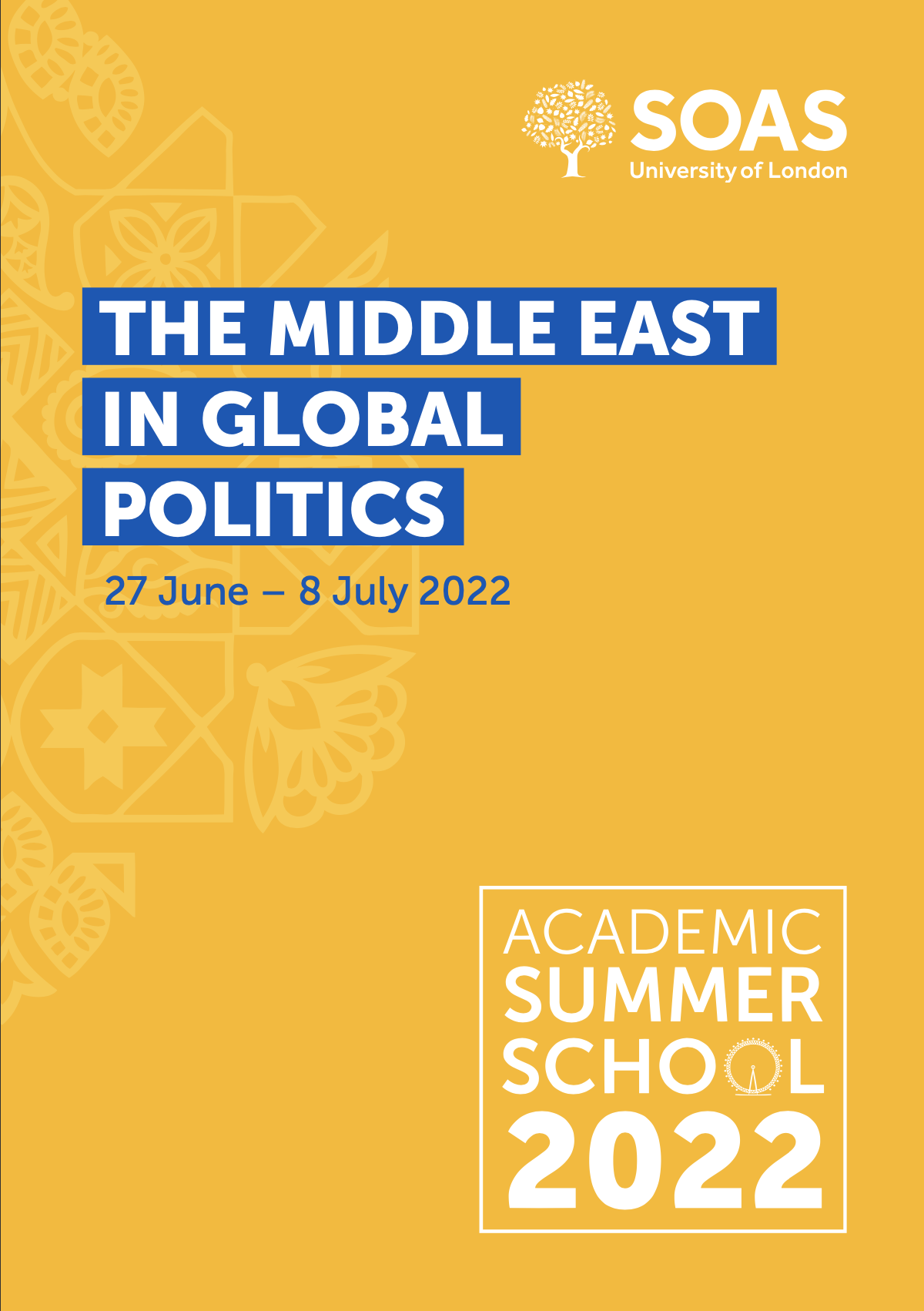What do we mean by the Middle East – east of where and why? How should we go about studying the political aspirations and agency of almost half a billion people? To what extent are their fates tied to great power politics, and how can we account for phenomena of cooperation and solidarity in their regional affairs? Can we draw a clear line between the local and the global in Middle East politics?
This two-week immersive course will help students deliberate all these questions by placing the modern Middle East in its global context without losing sight of local and regional dynamics, cultures, and political traditions. It is informed by critical engagement with international relations scholarship. It features an exciting teaching team of academics from SOAS and beyond.
In its sixth year now, the course is currently available online and is worth 15 UK credits.
Further information on Course Structure, Learning Outcomes, and Fees can be found here. Please click here for the application form.
Please contact programme convenor Reem Abou-El-Fadl, Senior Lecturer in Comparative Politics of the Middle East, SOAS University of London, at ra47@soas.ac.uk with any questions.
